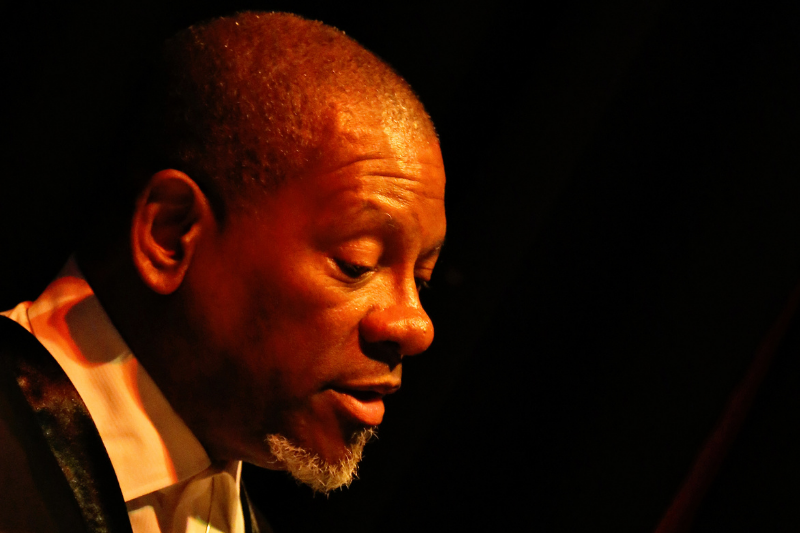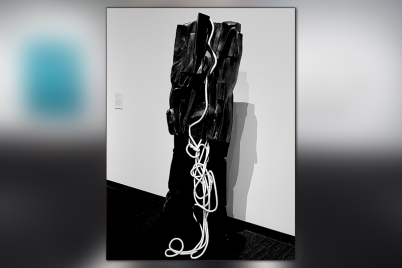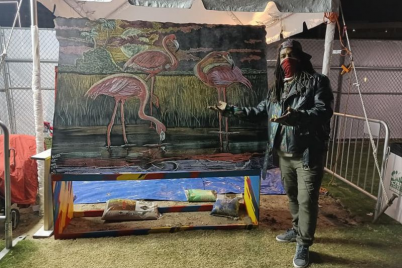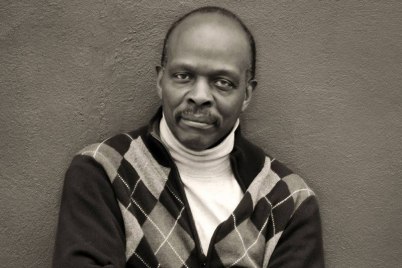A veteran musician for more than 30 years, one can hear the entire spectrum of jazz singing in the performance of vocalist Scotty Wright. The Studio@620 welcomes the Scotty Wright Quintet on Tuesday, March 29, at 7 p.m. Photo courtesy of Bari Lee
BY J.A. JONES, Staff Writer
ST. PETERSBURG — These days, one might consider themselves blessed to experience the sonic experimentation of a veteran jazz vocalist at the height of their career.
Now Tampa Bay has the opportunity for this very experience, as the great Scotty Wright Quintet appears for one night only at The Studio@620, 620 First Ave. S, St. Petersburg, next Tuesday, March 29 at 7 p.m.
In a time when most folks have gotten content with the digital sounds their smartphones blare forth from minuscule earbuds, Wright’s rich stylization, smooth delivery, and upbeat rhythms sound like buttery goodness that must be experienced live.
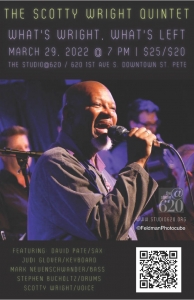 And in the true nature of jazz, every time, it feels different. “Let me tell you what I can’t do; I can’t sing a song the same way twice,” Wright has said. His vocal styling is playful, soothing, and uniquely his own – even if he gives legendary singers of yore their due in the chain of influence on today’s singer.
And in the true nature of jazz, every time, it feels different. “Let me tell you what I can’t do; I can’t sing a song the same way twice,” Wright has said. His vocal styling is playful, soothing, and uniquely his own – even if he gives legendary singers of yore their due in the chain of influence on today’s singer.
“Jazz singing started with Louis Armstrong; everybody was influenced by Louis, including Billie Holliday, and she always said so,” Wright has shared. “She was the second great influence on singers in the 1930s and ’40s; then it was Ella (Fitzgerald) and Sarah (Vaughan). Listening to Billie taught me to focus on the lyrics; with Ella, it was the rhythm, with Sarah the moods reflected in the voice.”
Wright originally hails from South Carolina. He was 8 years old, living with his military family in Germany when he experienced his first piano lesson, and after dropping piano, drums followed soon after. By age 13, with his family stationed now in Taiwan during the Vietnam War, he and sister Nina were writing music and had started a band – with music deemed worthy enough to play on the Armed Forces Radio.
By 1968, his family was living back in the States, and Wright started singing in his high school choir in Seaside, Calif. By 1970, he’d auditioned for and joined the international high school touring band Up With People.
In a few years, he’d become a music director for a church, where he taught himself to learn the piano. Soon he was writing jingles, singing a variety of musical styles, and playing in clubs with musicians including Art Pepper, Jack Sheldon, and Eugene Wright.
By the early 80s, Wright had landed in San Francisco, continuing to make a name for himself when a near-fatal case of viral meningitis struck him. He recovered but lost his voice temporarily due to complications from encephalitis.
For Wright, it was a terrifying time. “I would rather have lost my eyesight. But to lose my voice…my voice is everything to me and my career,” he recalled.
After fully recovering his voice, Wright decided only to sing what he wanted to sing going forward – and that was jazz.
He has shared not only his musical talents, but has written extensively about music, race, and other topics in essays, and has amassed more than 650,000 views of his writing on Quora, a platform he started writing for when a stroke a decade ago took him off the road for a time.
Among the thoughtful selection of topics is a consideration of why jazz music is not as popular today as it once was. In one piece, Wright notes that conditions including simplification of sound, less experimentation, a tendency toward “loud” volumes, and the speed at which our world is going have contributed to the slow fade of jazz in American music culture.
Taken all together, Wright has posited that for jazz, or as he put it, “collective improvisation” to become popular again, the “ear” of our society needs some retraining. “We must re-learn how to listen.”
“That statement came up mainly when people were talking about why jazz couldn’t be the popular music anymore,” he shared. “And we have changed so much over the decades that we’re not ready for that musically.”
Wright believes that today’s music is largely viewed as entertainment rather than art. “It’s not considered to be something that will make us think or make us feel things; so [it’s about] the visuals of having smoke machines and laser shows, and choreography, rather than actually sitting and listening to a performer express themselves.”
That, acknowledged Wright, is a loss, and our constantly being bombarded by social media has lessened our ability to simply sit and listen to music or even spoken word.
“It changes how we perceive things. We have gotten to the point where the general public feels that if you’re just standing up there and expressing yourself without all the bells and whistles, we feel as though you haven’t done enough. We get bored with that. And so, as a result, I feel we have to learn how to listen.”
Wright performed recently in Sarasota and is now heading to St. Pete on Tuesday, along with his musicians: David Pate (sax), Judi Glover (keyboards), Mark Neuenschwander (bass), and Stephen Bucholtz (drums). Click here to purchase tickets.
“I have performed here over the last four years in the Tampa Bay area,” Wright added. “And I have enjoyed performing for people and sharing my interpretations of the Great American Songbook. But this time around, I feel as though it’s time for me to sing ‘What’s Wright.’ And so, I’m performing the music that I’ve written, and I’m sharing that with Florida, and hopefully, you’ll enjoy it.”
Visit scottywright.com to learn more about Scotty Wright. Click here to follow his writings and thoughts on Quora.

